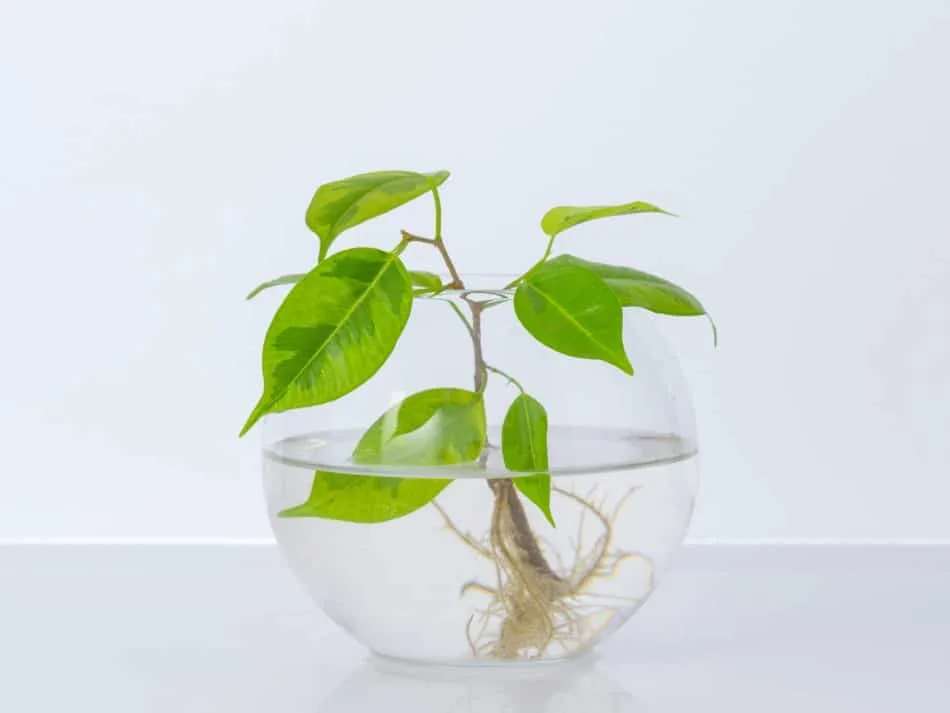Growing herbs on your boat can give you the fresh flavors you are craving while you are out at sea.
Growing herbs on a boat requires planning and a little flexibility. Herbs don’t need as much water or fertilizer as fruits and vegetables, making them well-suited to growing in containers and small spaces.
It’s easy to grow herbs on land, so transitioning to growing them on a boat doesn’t take much specialized knowledge. Like gardening on land, planning and patience will give you excellent results. This article will show you how to grow and take care of herbs on a boat and which herbs will thrive in this environment.

How to Grow Herbs on a Boat
The obstacles to growing herbs on a boat are likely familiar to anyone who already spends a lot of time on a boat: getting adequate freshwater, supplies, and space. Luckily, herbs are small and easy to grow, so they don’t need many supplies or square feet.
Fresh Water
Most herbs don’t require a lot of water, in fact excessive watering will rot their roots and kill them or encourage mildew growth. If you’re sailing on saltwater, you can desalinate water for your herb garden or collect rainwater for it. If you’re sailing in freshwater, you can likely water your herbs with the same water you’re sailing on.
No matter what watering system you use, it’s a good idea to invest in a pH meter to check the water’s acidity and make adjustments as needed.
Nutrients
As far as soil and fertilizer are concerned, you won’t need much of either. You can use store-bought soil or some garden soil from wherever you set sail. You should plant your herbs in small containers and use just enough soil to cover their roots.
Harvesting
You should harvest your herbs right before flowering, cutting the plant to about a third of its original size. This lets them continue growing new leaves or go to seed. When they go to seed, you can save the seeds to start a new plant, keeping you in herb heaven for weeks to come.
Best Location on a Boat for Growing Herbs
You might be wondering if there is a preferred part of the boat that is best for growing herbs. This depends on your boat, but there are three key things to consider when you’re choosing where to keep your plants:
- Adequate sunlight
- Avoiding spray of salty water
- Stability from falling
Amount of Sun
You’ll also want to put your herbs somewhere they’ll get adequate sunlight. Depending on the climate where you’re sailing, this might mean you have to move them throughout the day to follow the sun.
Herbs need between four and six hours of sunlight a day. For some climates and seasons, this will be easy to achieve. However, there are many places on a boat that cast shadows, and on a boat in constant motion, those shadows will shift throughout the day.
If there’s not a place on your boat that gets a full six hours of sunlight every day, you’ll want to find multiple locations and rotate your plants between them. As you move through the seasons and travel, you might find that you can leave your herbs in one spot in the spring and summer but need to move them around in the fall or winter.
Avoiding Salty Spray
Salt spray will kill your herbs and you don’t want to get salty water in their soil or on their leaves. If a little salt spray hits them, you can rinse it off with freshwater, but it’s best to avoid that situation altogether.
If you’re on a sailboat, the dodger is a good place for herbs to hang out because it protects them from salt spray, but still lets sunlight in. You’ll want to secure the planters to the boat somehow so that mild waves and wind don’t knock them over. However, you’ll want them to be easy to move in case of especially rough water or to follow the sun.
Stability
As wonderful as having fresh herbs onboard is, that pleasure isn’t worth it if you’re constantly cleaning up spilled soil and replanting your toppled herbs. The best way to keep herbs stable is to plant them in long, shallow containers that won’t tip over easily, and secure your containers to the boat.
You can glue one side of heavy-duty Velcro to the bottom of your containers and then glue the other side of the Velcro to the places on your boat where you want your herbs to sit. This will help you secure them while keeping them mobile and cut down on spilled water and soil.

Which Herbs Grow Well on Boats?
Most herbs will thrive on a boat, but if you group herbs by their needs, you can maximize your space and herb production. Grouping them by water and drainage needs will help you avoid root rot.
- Mint and cilantro: Mint and cilantro both like moderate water and drainage. Mint does exceptionally well in containers, as the container stops them from overwhelming other nearby plants and spreading uncontrollably. You should keep mint and cilantro separate, but they can be neighbors as they share similar growing conditions.
- Thyme, oregano, and rosemary: Thyme, oregano, and rosemary thrive with very little water, and they can share a planter, too. These herbs are woodier and hardier than other herbs, so they’re a good choice for new gardeners.
- Basil and parsley: Basil and parsley prefer more moist soil, so you should only grow them if you have plenty of water. However, they’ll both produce abundant leaves throughout the growing season, so you’ll get a large harvest for your efforts.
What Types of Containers Should Be Used When Growing Herbs on Boats?
Now that you’ve picked your herbs and found the right spots on your boat to grow them, what should you grow them in? The containers you choose should be wider than they are tall to keep them upright as the ship moves, and you’ll want to pick a durable material that won’t break easily if the plants do fall over.
You can plant your herbs in either store-bought soil or soil from anywhere you make port; just make sure it’s gardening soil and not sandy soil. It’s a good idea to keep a little extra on board in case of spills.
Closing Thoughts
Growing herbs on a boat is easy with a bit of planning. Most herbs thrive in containers, don’t need fertilization, and are low maintenance options for adding fresh greens to your diet while you’re sailing. With a few modifications to keep your plants secure on board, you can grow your own herbs wherever the waves may take you.
Here are Some of my Favorite Gardening Products and Tools
Thank you for reading this article. I hope you found it helpful for growing some new plants in your home or garden. Here are some products I like that I hope you’ll also find helpful. These are affiliate links, and I am compensated for referring traffic. But in all honesty, these are the exact product that I use or recommend to everyone.
Soil: For high-quality soil, I really like Fox Farm Ocean Forest. I do all my growing in containers and this soil has worked great for me. I like how they use nutrient-rich contents like earthworm castings, bat guano, and composted crab and fish.
Fertilizer: Currently I am using a seaweed-based organic fertilizer call Neptunes Harvest. This is a great milder fertilizer option if you want to use something organic. If you want a more powerful fertilizer, I recommend Fox Farm Liquid Nutrient Trio, lots of people have had great growing success with this product.
Pruning Shears: Pruning shears are one of the most useful gardening tools to have because it’s important to prune your plants to keep them healthy. The pruning shears I recommend are the Gonicc 8’’ pruning shears. I like them because they are built sturdy and work both on bigger and smaller plants, so you don’t need to have multiple pruning shears.
spicytrio.com is a participant in the Amazon Services LLC Associates Program, an affiliate advertising program designed to provide a means for sites to earn advertising fees by advertising and linking to Amazon.com. spicytrio.com also participates in affiliate programs with other sites. spicytrio.com is compensated for referring traffic and business to these companies.
